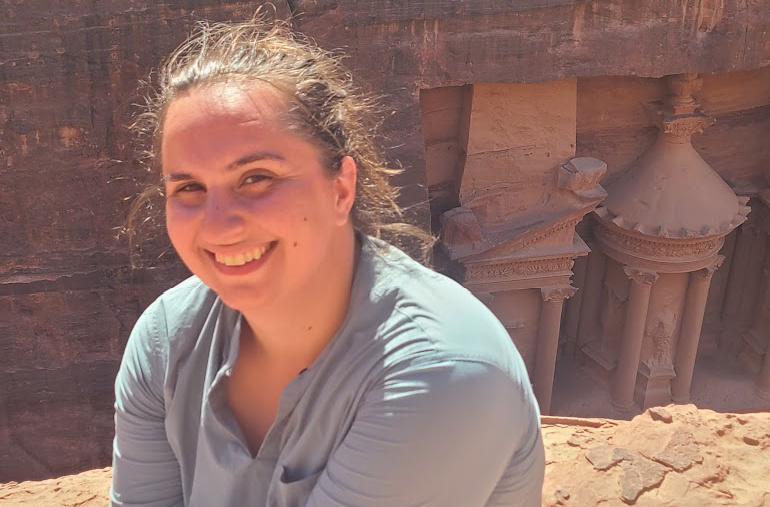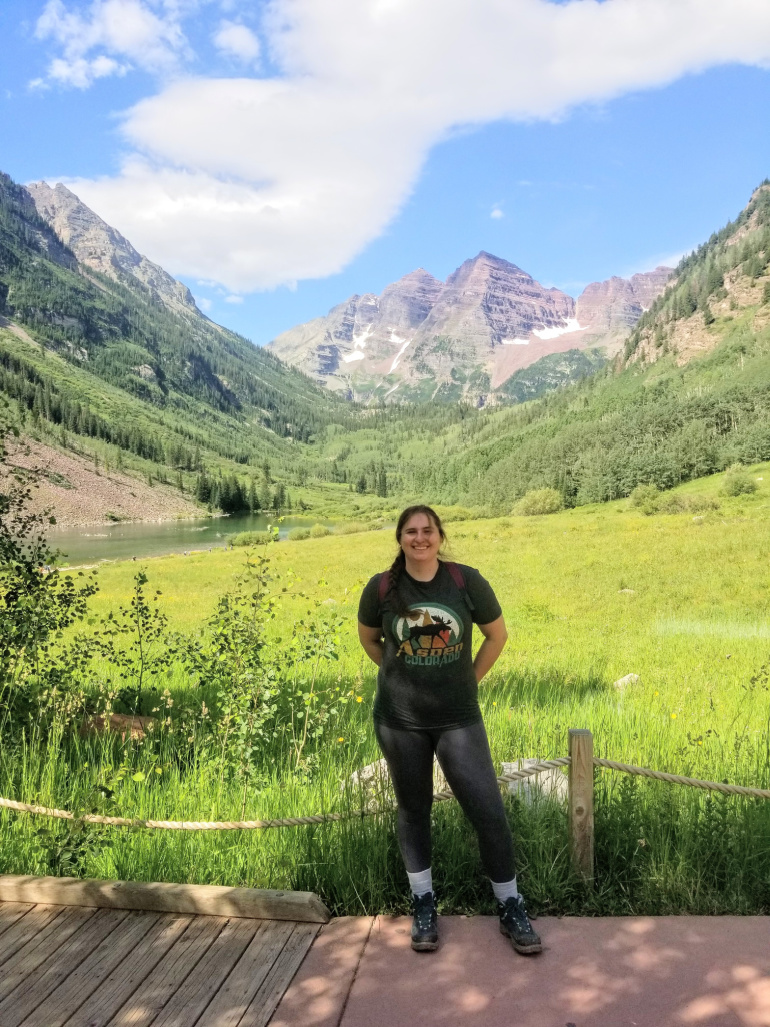
When Kristen Dage was completing her application for the NASA Hubble Fellowship Program, she could have picked any school in the United States to attend. She chose Wayne State University after beating out hundreds of applicants for the NASA Hubble Fellowship.
“It was easy for me to pick Wayne State for so many reasons,” Dage said. “Wayne State has an amazing astronomy department. They have amazing astronomers whose research is really aligned with what I do. I’ve known them for almost a decade at this point and always wanted to work with them. This was the perfect opportunity to do it.
“We’re all super excited because usually when people get one of these, they generally go to the same 10 universities, like Harvard or Yale. I wanted to do something different.”
Dage began working at the university recently and is the first person with a NASA Hubble Fellowship to come to Wayne State.
“Kristen bringing this prestigious fellowship to Wayne State helps raise the profile of our relatively new and growing astronomy research program,” said Ed Cackett, chair of Wayne State’s Department of Physics and Astronomy. “Our students will greatly benefit from both her scientific expertise and from hearing about her experience and career path.
“The NASA Hubble Fellowship Program is a big deal,” Cackett added. “It is the top postdoctoral fellowship in all of astronomy. Only 24 scientists were selected from more than 450 applications this year. The fellows can choose any U.S. institution to take the fellowship to, and so it is a great honor for Wayne State and our department that Kristen chose us.
"Of course, I think it is a great match – Kristen is doing exciting science using multiwavelength datasets that complements the research we do here. We have great faculty working on X-ray astronomy who she can collaborate with and whose expertise can contribute to the success of her work.”

Dage had previously applied twice for the fellowship but was not selected; this summer was her final chance to apply. She was working at McGill University in Montreal when she got acceptance email.
“I was on a Zoom call with one of the undergrad students wrapping up her project on neutron stars when the email came in. Usually when you get something accepted or rejected, you can tell by the email header, but this one was very neutral,” Dage said. “I thought, ‘It’s probably a rejection, nobody gets these. So, I’ll just click on it and get it out of the way.’ I was reading it and couldn’t believe it. I sent a screenshot to the student to make sure I was reading it right; I couldn’t believe my eyes. It's like winning the lottery. I was genuinely shocked. It's still hard for me to believe.”
Dage’s fellowship started Sept. 1 and includes her salary plus funding for three years.
“While I'm at Wayne State, I will do work on my research project and I hope that I'll be able to work with a lot of the students,” Dage said. “I’m excited to talk to the students about my project. The fellowship also pays for me to go to conferences, so I’ll be going to some of those and talking about my project.”
Dage’s project is titled “Hunting for Accreting Black Holes in Young Massive Clusters.” Her research uses X-ray and optical observations to study rare compact objects that produce X-ray emission — black holes and neutron stars, as well as understanding how the gigayears-old star cluster environments they are born in affect their formation and evolutionary history.
As an Einstein Fellow, Dage will extend her work into a regime of much younger star clusters and use multiwavelength observations to identify or rule out potential intermediate mass black holes and probe the properties of stellar environments that may contribute to the intermediate mass black hole population.
“When we study black holes, we kind of categorize them by mass,” Dage said. “There are supermassive black holes, and then there are these stellar mass black holes, which are the ones that they found in 2016. And then there's this other class I like to call it the ‘Goldilocks’ of black holes. They're called intermediate mass black holes, so they're not too big, not too small and we have very little to no observational evidence — depending on who you talk to — of them.
"There are a lot of theories about how everything in the universe grows and forms, and they depend on whether they exist or not. So, this project is designed to target the areas where everybody says, theoretically, they should or shouldn't be and look for observational evidence or lack of observational evidence of it.”
Dage said that no matter what she finds, it will likely be somewhat controversial.
“We’re either going to make one group of people happy because we found them or we’re going to inconvenience them because we don’t and vice versa,” Dage said. “We're going to look at probably more than 50,000 sources and be able to say, ‘Hey, there's not any there or there are a bunch.’ So either way, there will be some exciting science results.”
Dage will use archival data from NASA for the project.
“I’ll be using X-ray data from the Hubble space telescopes with follow-up from radio and optical ground-based optical telescopes,” Dage said. “What’s cool about astronomy data is it’s all publicly available. Anyone could go home and download the data. I’m going to use it for my project. But we’re going to search through all these different wavelengths to find the observational signatures of black holes and classify them. Are they intermediate mass black holes?”
Dage is excited to get her project going and for what the future will hold.
“This is going to open a lot of doors for me to keep doing research,” Dage said. “Hopefully, I’ll eventually like wind up at a university in a faculty position where I can teach and do research. The most important thing for me is to be working with undergraduate students.”
